Best muscle recovery foods: What to Eat After a Workout

Introduction: Rebuilding Strength Starts in the Kitchen
When it comes to building muscle, most people think of intense workouts, weight training, and fitness routines. But what happens after you leave the gym is just as crucial—especially what you eat. Whether you’re a seasoned athlete or a casual gym-goer, muscle recovery foods can dramatically impact how fast and how well your body repairs itself.
Muscle recovery isn’t just about rest—it’s a science rooted in nutrition. After a strenuous workout, your muscles experience microscopic tears. While this may sound harmful, it’s actually a natural part of the muscle-building process. The real transformation happens during recovery, and that’s where the right post workout meal ideas come into play.
In this comprehensive guide, we’ll dive deep into the best foods for muscle recovery, how they work, and why they’re essential. You’ll learn not only what to eat but also how to combine ingredients to maximize recovery, minimize soreness, and boost muscle gains. From protein-packed snacks to anti-inflammatory superfoods, discover how to feed your muscles what they truly need.
Let’s start by understanding what we mean when we say “muscle recovery foods”—and why they matter more than you think.
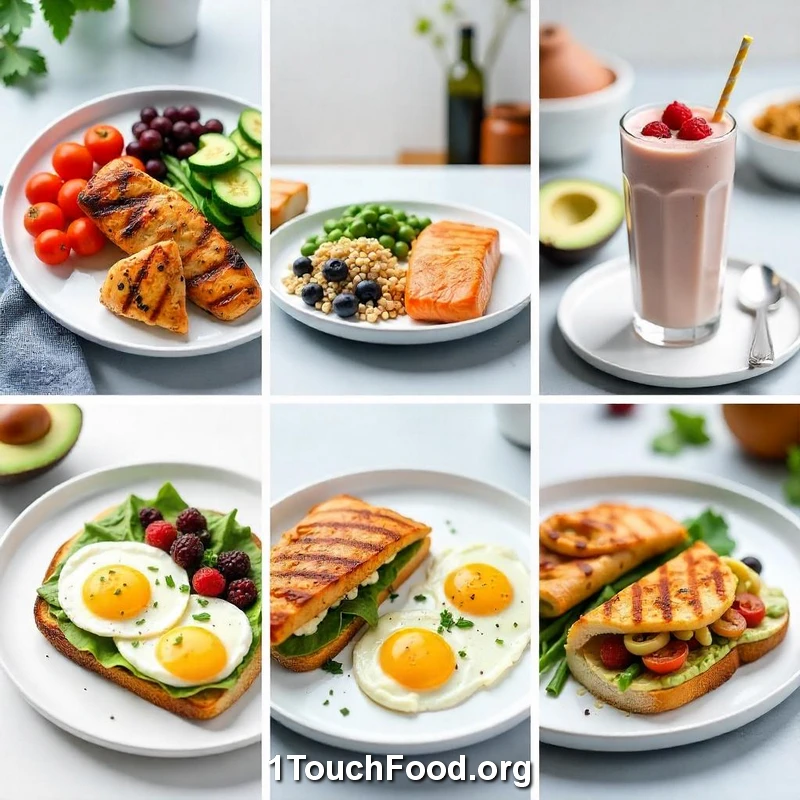
What Are Muscle Recovery Foods?
Fueling the Repair Process After Exercise
Muscle recovery foods refer to nutrient-dense options specifically consumed to accelerate the healing and rebuilding process of muscle fibers after physical activity. These foods are rich in macronutrients like protein and carbohydrates, along with essential micronutrients such as magnesium, potassium, zinc, and vitamins C, D, and B-complex.
When you work out—especially with resistance or strength training—your muscles undergo stress that causes minor damage to the tissue. This damage triggers a biological response, prompting the body to repair and rebuild the muscle fibers, resulting in stronger, larger muscles over time.
The foods you eat post-workout play a direct role in how quickly and efficiently your body can complete this repair cycle. Here’s how different nutrients contribute:
-
Proteins provide amino acids—the building blocks of muscle tissue.
-
Carbohydrates help replenish glycogen stores, essential for energy recovery.
-
Healthy fats, like omega-3s, reduce inflammation and joint pain.
-
Electrolytes and minerals assist in hydration and muscle function.
These nutrients, when consumed strategically after workouts, not only enhance muscle regeneration but also reduce fatigue, soreness, and the risk of injury. It’s not just about refueling—it’s about rebuilding smarter.
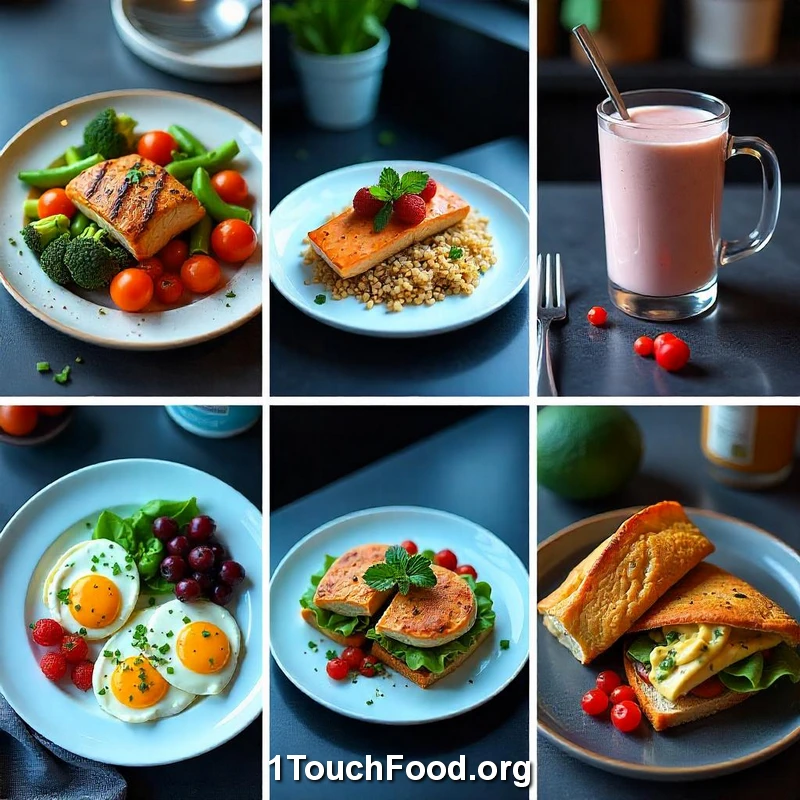
Key Benefits of Muscle Recovery Foods
Why Your Post-Workout Meal Could Make or Break Your Gains
Consuming the right muscle recovery foods post-exercise can significantly impact your performance and results. Skipping this vital step or opting for the wrong types of food can lead to slower recovery, increased soreness, and reduced training efficiency over time. Below are some of the most important benefits of eating recovery-friendly meals:
1. Accelerated Muscle Repair and Growth
The main advantage of eating nutrient-rich foods after a workout is faster muscle repair. Protein-rich foods such as lean meats, eggs, dairy, and legumes provide the essential amino acids required to rebuild muscle fibers. The faster you repair damaged tissue, the faster you can return to training—and with improved strength.
2. Reduced Muscle Soreness
Delayed onset muscle soreness (DOMS) is common after high-intensity training. Recovery foods rich in antioxidants and anti-inflammatory properties, like berries, leafy greens, and fatty fish, help reduce oxidative stress and inflammation. This means less soreness and a smoother recovery process.
3. Replenishment of Energy Stores
Carbohydrate intake post-workout is critical for restoring glycogen levels, which are depleted during physical activity. Foods like sweet potatoes, brown rice, and fruits provide complex carbs that gradually replenish your energy stores, allowing you to stay energized for your next session.
4. Improved Immune Function
Intense workouts can temporarily suppress your immune system. Including recovery foods packed with vitamins A, C, and E strengthens immunity, preventing common colds and other infections that may interrupt your training cycle.
5. Hormonal Balance and Reduced Cortisol Levels
Training increases cortisol (the stress hormone) in the body. Balanced post-workout meals with protein, fats, and carbohydrates help regulate hormonal responses, keeping your body in an anabolic (muscle-building) rather than a catabolic (muscle-breaking) state.
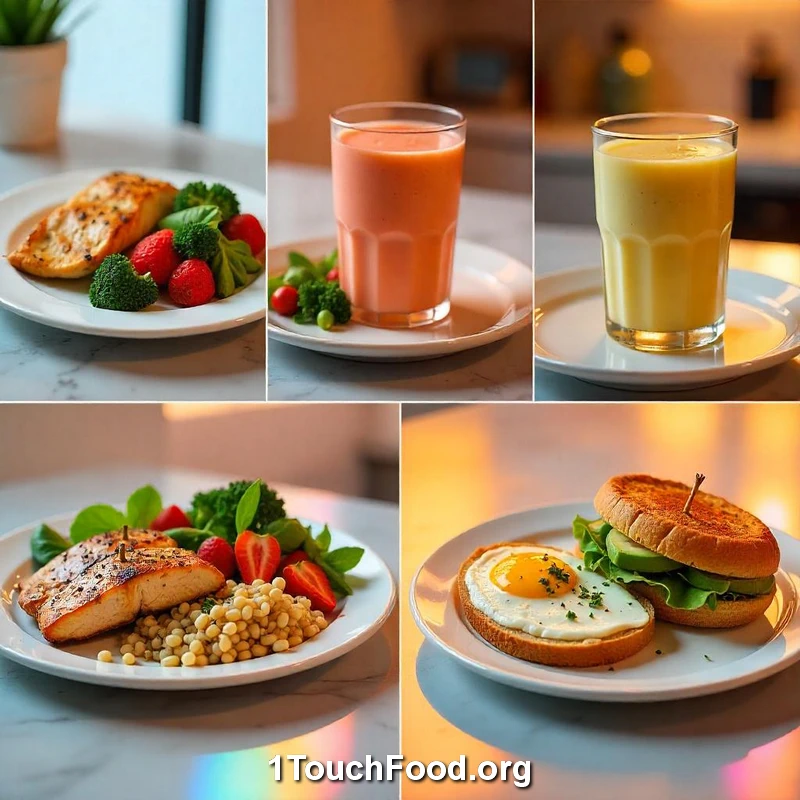
Smart Post Workout Meal Ideas to Maximize Muscle Recovery
After you’ve pushed your muscles to the limit, it’s time to refuel with purpose. A well-structured post-workout meal can be the difference between rapid recovery and lingering soreness. In this section, we’ll provide you with smart and effective post workout meal ideas that are easy to prepare, nutritionally balanced, and proven to support muscle regeneration.

The Ideal Macronutrient Breakdown
For optimal muscle recovery, your post-workout meal should include:
-
20–40g of protein for muscle repair
-
40–80g of carbohydrates to replenish glycogen
-
A small portion of healthy fats for hormonal balance
-
Hydrating fluids with electrolytes
Top 5 Post Workout Meal Ideas
🥩 1. Grilled Chicken with Quinoa and Roasted Vegetables
-
Why it works: Lean protein for amino acids, complex carbs from quinoa, and antioxidants from vegetables.
-
Best for: Weightlifters and high-intensity trainers.
🍳 2. Scrambled Eggs on Whole Grain Toast with Avocado
-
Why it works: Eggs are a complete protein source; whole grains provide sustained energy; avocado adds healthy fats.
-
Best for: Morning workouts or moderate training sessions.
🍚 3. Salmon, Brown Rice, and Steamed Broccoli
-
Why it works: Salmon provides anti-inflammatory omega-3s, while rice restores glycogen and broccoli offers vitamin C.
-
Best for: Endurance training recovery.
🥤 4. Protein Smoothie with Banana, Greek Yogurt, Berries, and Almond Butter
-
Why it works: Quick-digesting protein plus fast carbs from banana for glycogen and antioxidants from berries.
-
Best for: On-the-go recovery after cardio or HIIT.
🌯 5. Turkey and Hummus Wrap with Spinach in a Whole Wheat Tortilla
-
Why it works: Lean turkey gives you the protein hit, hummus provides fiber and healthy fats, spinach brings in iron and nitrates.
-
Best for: Lunchtime refueling.
When to Eat Your Post-Workout Meal
Timing plays a crucial role in maximizing muscle recovery. Research supports consuming your recovery meal within 30 to 60 minutes post-exercise. This is when your muscles are most receptive to nutrient uptake—a phenomenon known as the anabolic window.
If you can’t eat a full meal right away, a quick protein shake or smoothie can serve as a bridge meal, followed by a more complete dish within a couple of hours.
Add-ons and Hydration Tips
Don’t overlook hydration. Your muscles need fluids and electrolytes (sodium, potassium, magnesium) to function properly and recover faster. Consider:
-
Coconut water as a natural electrolyte source
-
Watermelon juice for hydration and muscle cramp prevention
-
Herbal teas like ginger or turmeric tea to fight inflammation
Eating smart after a workout isn’t just about filling your stomach—it’s about strategically fueling recovery, so your body can perform better, train harder, and build leaner muscle over time.
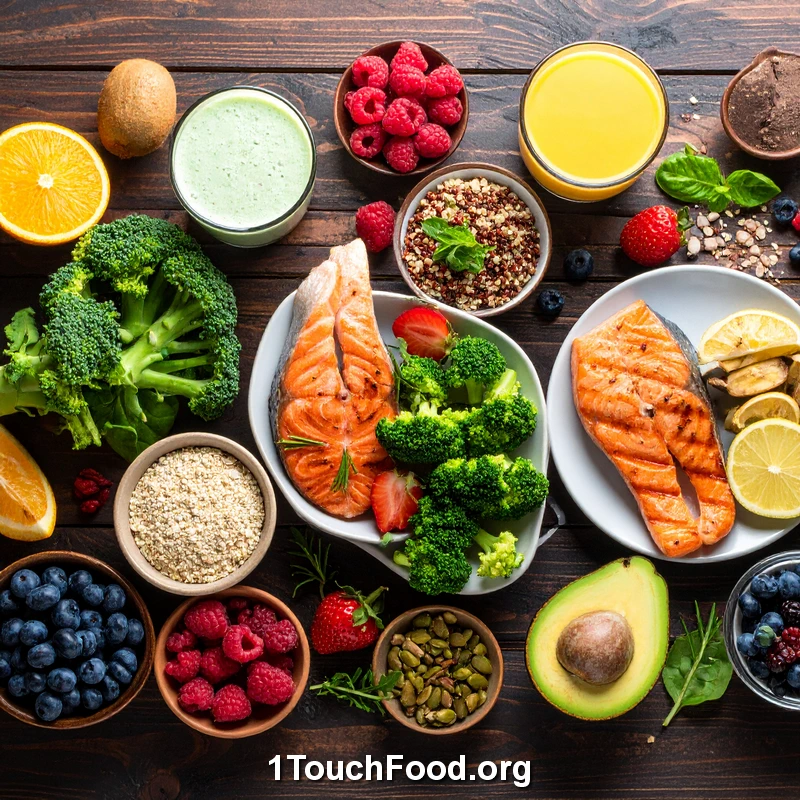
How Muscle Recovery Foods Work Together for Optimal Results
Proper nutrition is rarely about isolated foods—it’s about synergy. The best muscle recovery foods work even better when paired thoughtfully. Let’s dive into how combining specific nutrients enhances recovery and how you can build a recovery-friendly plate.
The Power of Protein + Carbs
Carbohydrates and protein together have a synergistic effect. While protein provides the raw materials (amino acids) for muscle repair, carbohydrates increase insulin levels, which helps shuttle those amino acids into muscle cells more effectively.
Example meal:
-
Grilled chicken (protein)
-
Sweet potato (carb)
-
Steamed asparagus (micronutrients)
This trio creates a powerhouse combination for recovery.
Micronutrients Matter
Vitamins and minerals may be small in quantity, but they play big roles in recovery:
-
Magnesium helps relax muscles and prevent cramps
-
Zinc aids in tissue repair
-
Vitamin C supports collagen formation and reduces oxidative stress
-
Iron enhances oxygen delivery to muscles
Include colorful vegetables, seeds, and whole grains to round out your meals.
Anti-Inflammatory Superfoods
Training creates inflammation. While some inflammation is necessary for adaptation, chronic or excessive inflammation can stall recovery. Include these foods for their anti-inflammatory benefits:
-
Fatty fish (omega-3s)
-
Turmeric and ginger (curcumin and gingerol compounds)
-
Dark leafy greens
-
Cherries and blueberries
These foods help your body bounce back faster and prepare for the next workout.
Timing + Consistency = Results
Recovery isn’t just what you do once—it’s what you do consistently. Eating well after a single workout helps, but consistently fueling with nutrient-dense meals throughout the week leads to sustainable gains in muscle mass, strength, and endurance.
Try planning your post-workout meals in advance. This removes the guesswork and ensures you’re never left with suboptimal options when your body needs nutrients most.
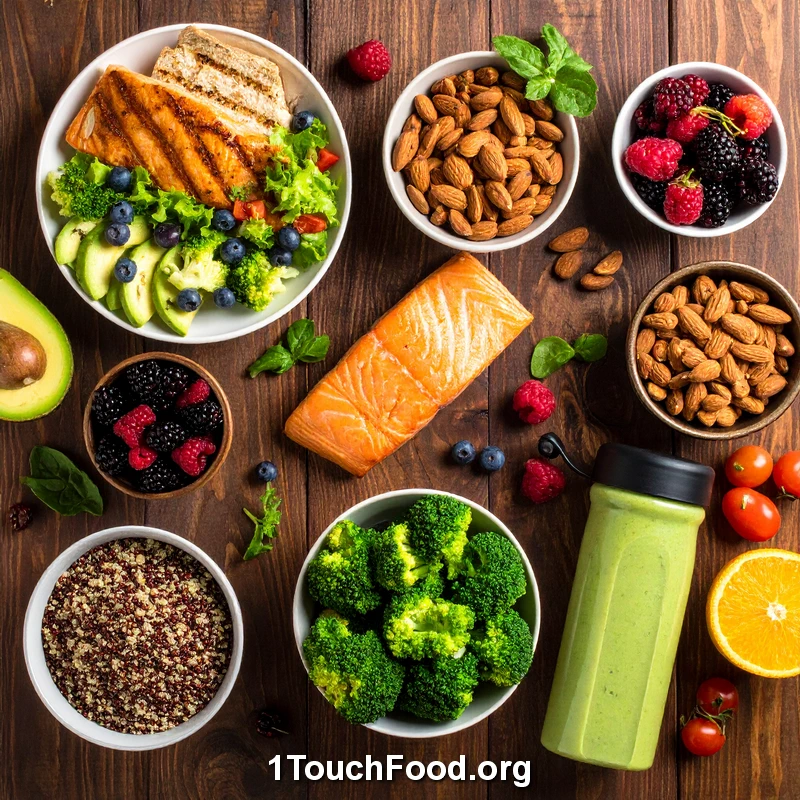
Comparing the Best Muscle Recovery Foods: What Works Best and Why
When it comes to choosing the right muscle recovery foods, variety and nutrient synergy are key. But not all options offer the same benefits. This section provides a comparative look at top foods based on their effectiveness in muscle repair, anti-inflammatory benefits, and ease of digestion.
🥗 Comparison Table: Top Muscle Recovery Foods
| Food Item | Protein Content | Anti-Inflammatory | Carb Support | Ideal For |
|---|---|---|---|---|
| Grilled Chicken | ✅ High | ❌ Low | ❌ Low | Strength training |
| Salmon | ✅ High | ✅ Excellent | ❌ Low | Inflammation recovery |
| Greek Yogurt | ✅ Moderate | ✅ Moderate | ✅ Moderate | Quick snack post-workout |
| Quinoa | ✅ Moderate | ✅ Mild | ✅ High | Veg-friendly option |
| Eggs | ✅ High | ❌ Low | ❌ Low | Morning meals |
| Berries | ❌ Low | ✅ High | ✅ Moderate | Antioxidant boost |
| Sweet Potato | ❌ Low | ✅ Mild | ✅ High | Glycogen restoration |
| Protein Smoothie | ✅ High | ✅ Varies | ✅ High | Fast post-gym nutrition |
Each of these foods plays a unique role. For full recovery, a combination of two to three complementary items from this list can deliver both muscle repair and inflammation control—ensuring a quicker, stronger comeback after every workout.
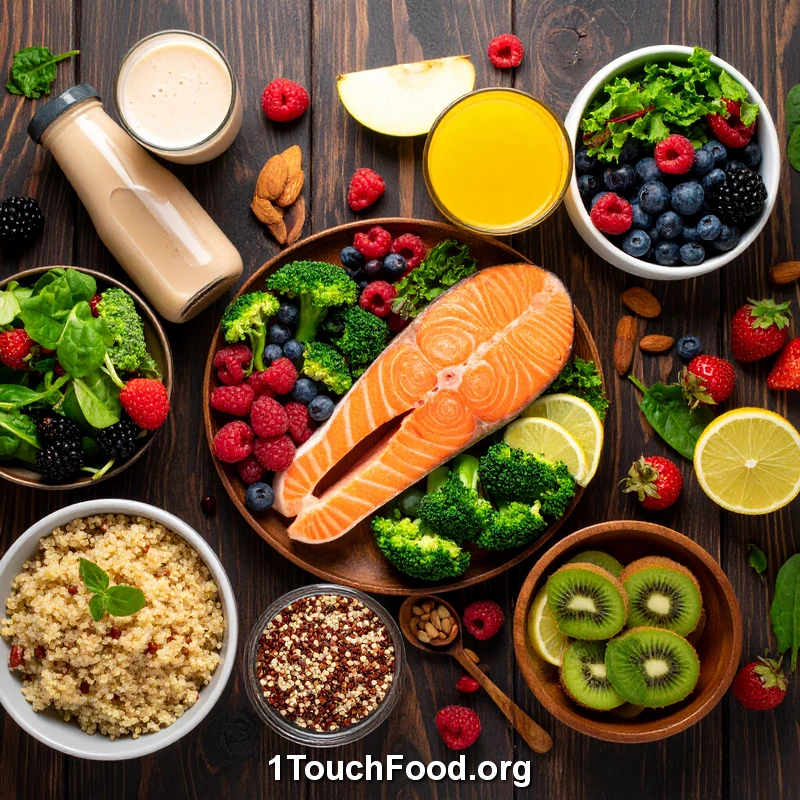
How to Build the Perfect Muscle Recovery Routine (Practical Tips)
🕒 1. Prioritize Timing: Use the Anabolic Window
Eat within 30–60 minutes of your workout. During this window, your muscles are primed to absorb nutrients more efficiently, especially amino acids and carbohydrates.
🧪 2. Balance Your Macronutrients
-
Protein: Aim for 20–40 grams depending on your weight and workout intensity.
-
Carbs: For every gram of protein, eat 2 grams of carbohydrates to replenish glycogen.
-
Fats: Include healthy fats in moderation—like olive oil or nuts—for hormonal balance.
🥗 3. Sample Recovery Plate
-
Protein: Grilled turkey breast (30g protein)
-
Carbs: Brown rice and a banana (60g carbs)
-
Veggies: Roasted broccoli and carrots (micronutrients + fiber)
-
Fats: A few slices of avocado
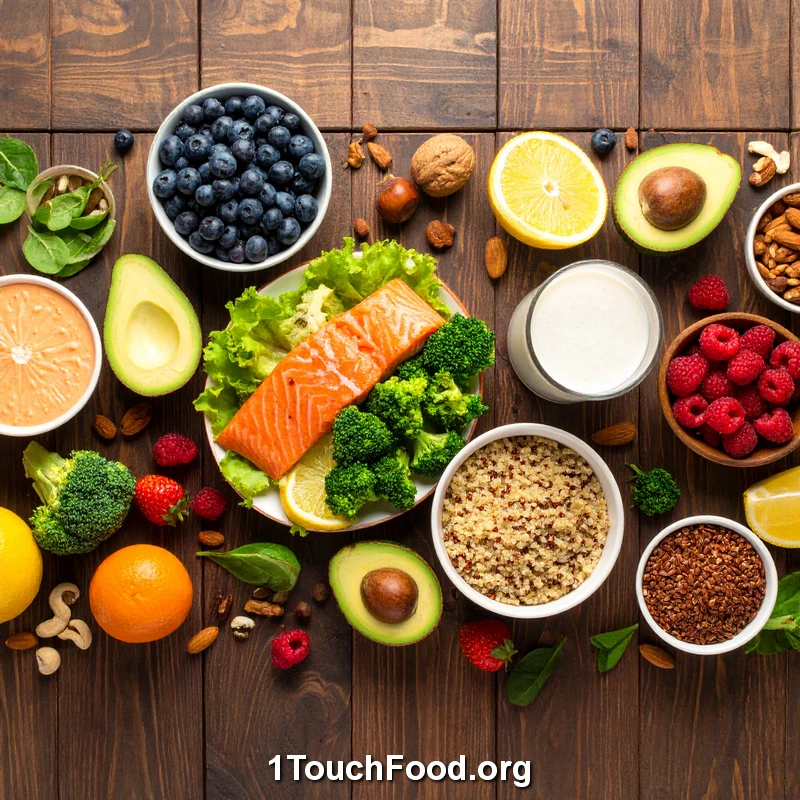
💧 4. Hydrate Intelligently
Water alone isn’t always enough. Replenish lost electrolytes by drinking:
-
Coconut water
-
Electrolyte-infused sports drinks
-
Herbal teas (like turmeric or ginger)
🗓️ 5. Prep in Advance
Recovery starts with preparation. Keep your fridge stocked with essentials:
-
Boiled eggs, cooked quinoa, pre-grilled meats
-
Washed berries, leafy greens, and bananas
-
Portion-controlled containers for smoothies and shakes
Consistency matters just as much as food quality. Creating habits around recovery eating makes the process easier—and the results more reliable.
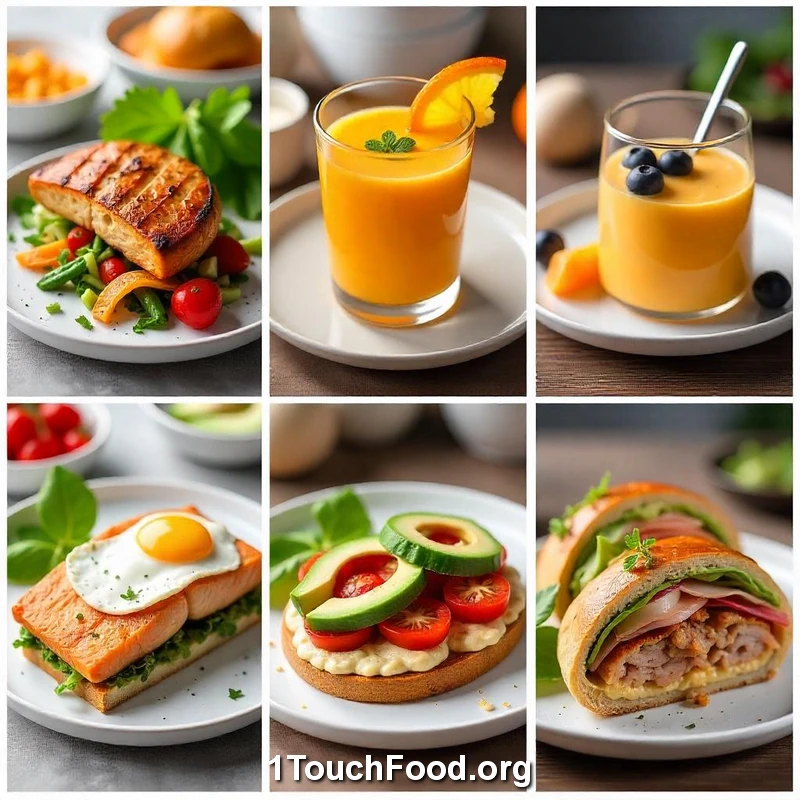
FAQs About Muscle Recovery Foods
❓ How soon after a workout should I eat?
Ideally within 30–60 minutes. This is known as the anabolic window when muscles are most receptive to nutrients.
❓ Can I just drink a protein shake instead of eating a full meal?
Yes, a protein shake is great for quick recovery, especially if you’re short on time. But aim to eat a balanced meal within 1–2 hours after.
❓ Do I need carbs after strength training?
Absolutely. Carbs are vital for restoring glycogen, which fuels your next workout and prevents fatigue.
❓ What if I’m trying to lose weight—should I still eat recovery meals?
Yes. Skipping recovery foods can lead to muscle loss. Just focus on lean proteins, complex carbs, and portion control.
❓ Are supplements necessary?
Not always. Whole foods are usually enough, but whey protein, BCAAs, or electrolyte tabs can be helpful if you’re training at a high level or can’t meet your needs through food alone.
Conclusion: Nourish to Flourish
Recovery is where progress truly happens. You can train with the best program in the world, but without the right muscle recovery foods, your results will suffer. Strategic post-workout meals don’t just help you feel better—they build muscle, reduce injury risk, and enhance long-term performance.
From lean proteins and antioxidant-rich fruits to hydrating beverages and well-balanced plates, the power to recover is on your fork. Eat smart, recover faster, and give your body the fuel it needs to grow stronger every day.
Enjoy! See our youtube. Quench your thirst and revitalize your body with our collection of refreshing and hydrating recipes. All athletes must pay close attention to their nutrition to achieve optimal performance. You can see CookBook for athletes and Building a Bigger Butt. Its very useful for athletes.


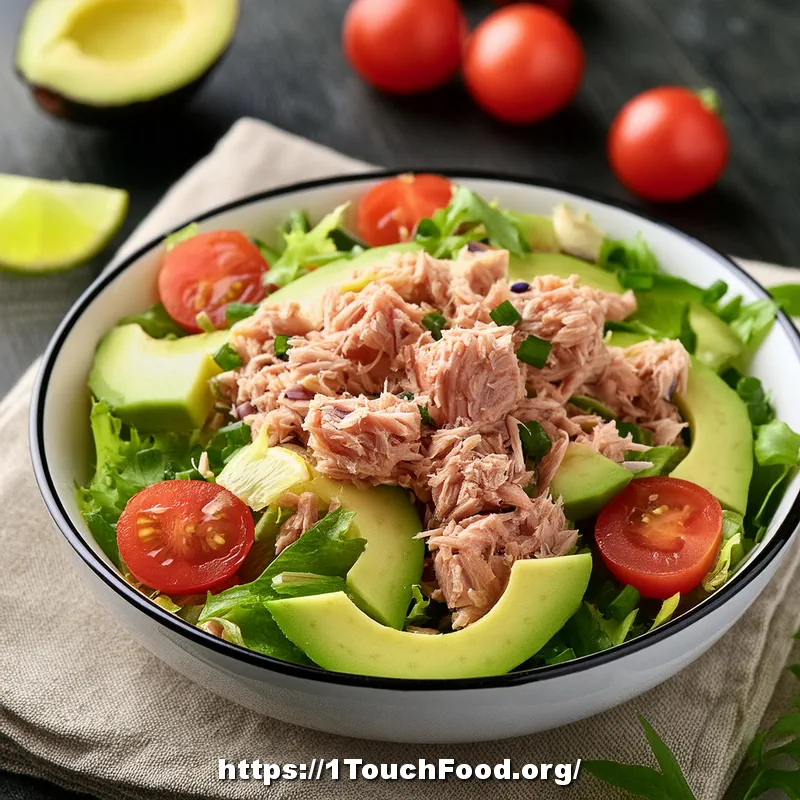
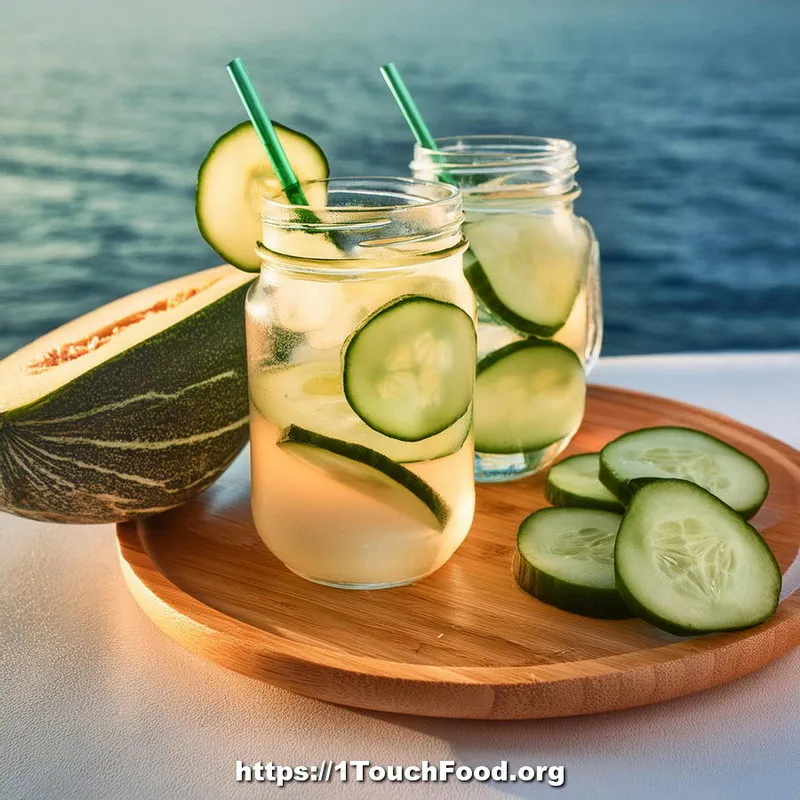

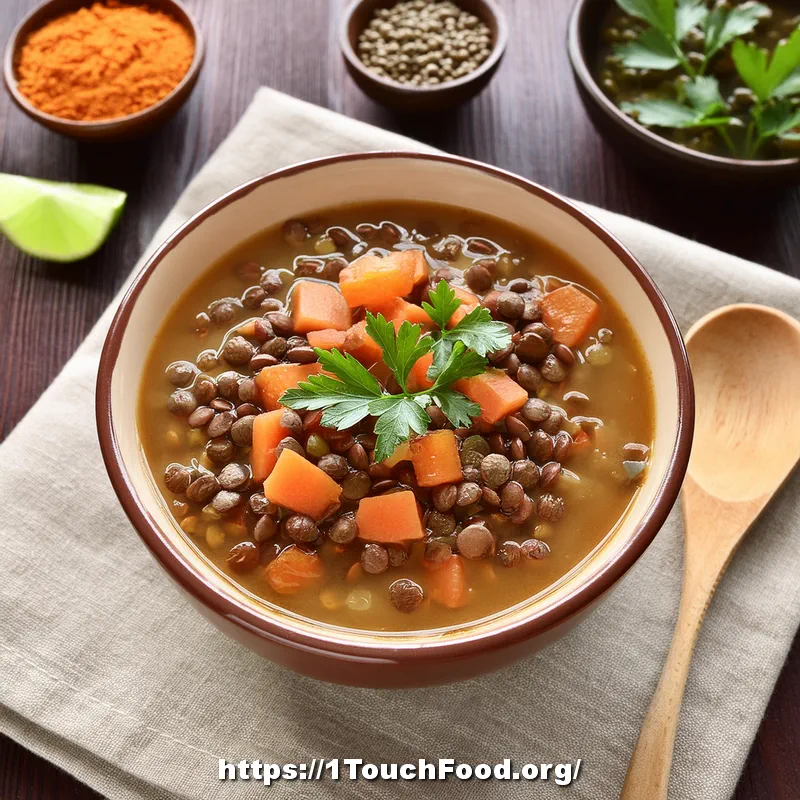

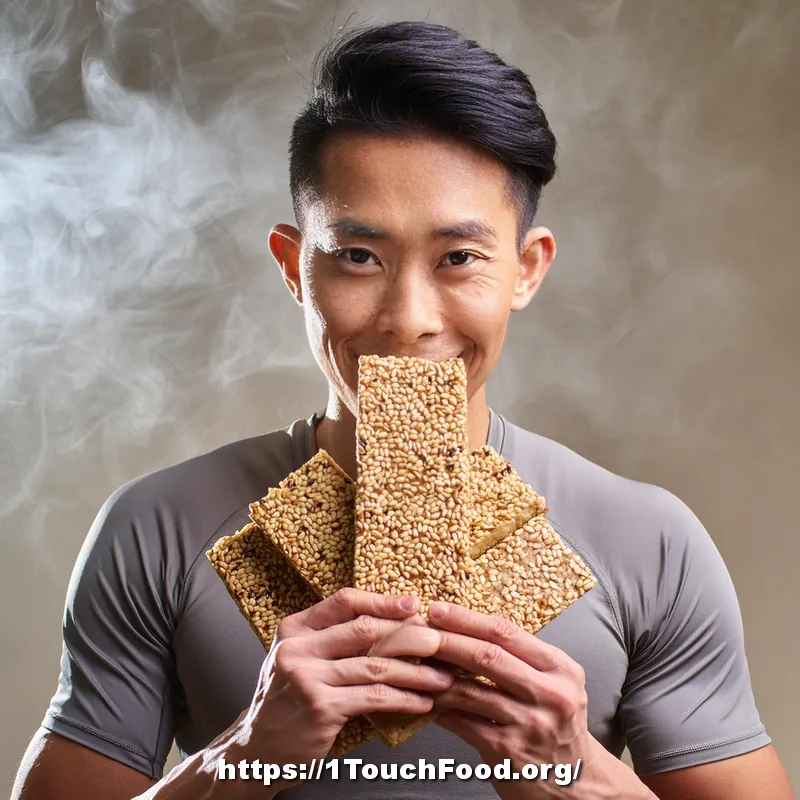

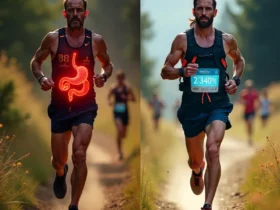



Leave a Reply